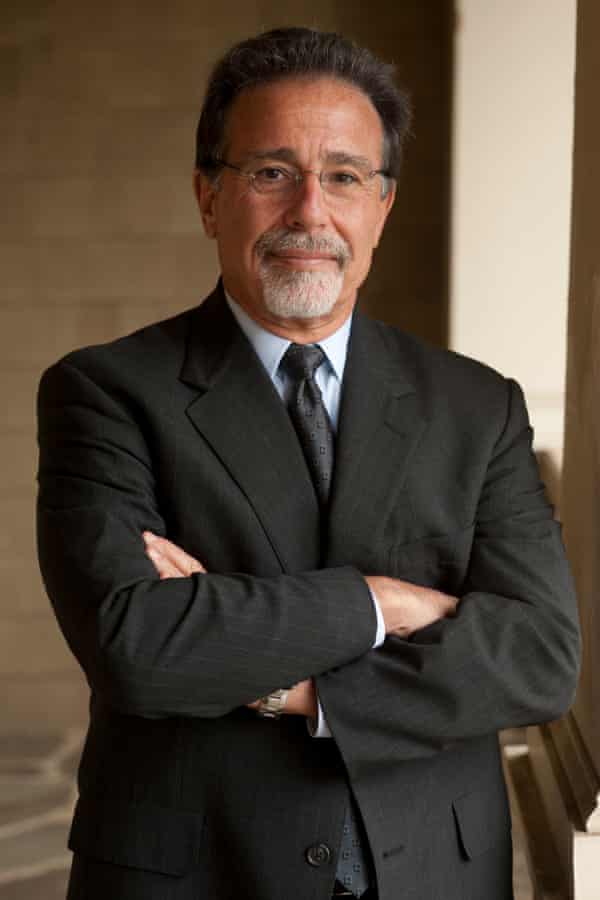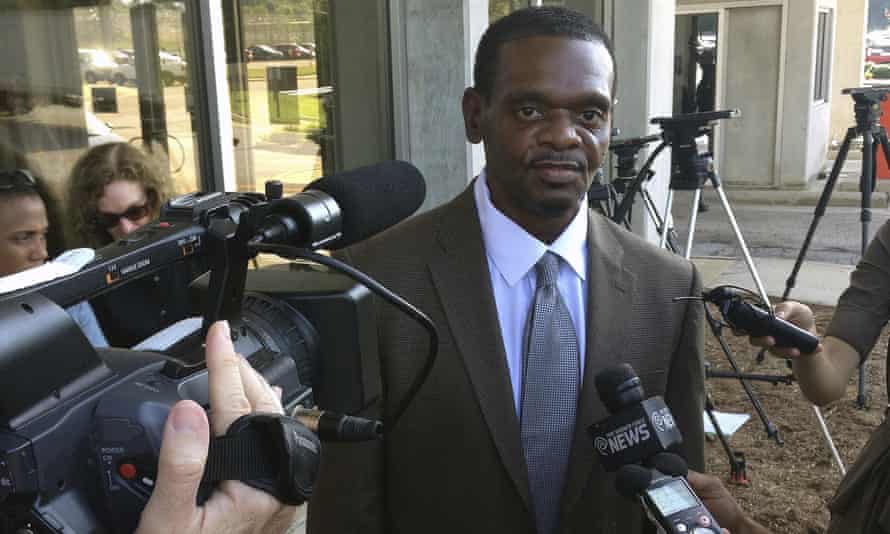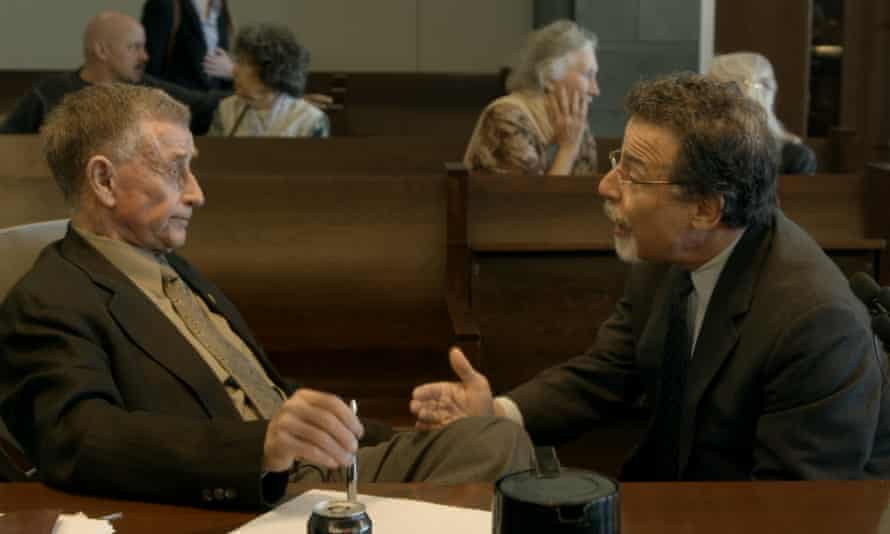‘It’s the tip of the iceberg’: shining a light on the horror of wrongful convictions | Books

[ad_1]
He had spent 43 years in jail, and a spell on demise row, for a homicide he didn’t commit. In 2019 Charles Ray Finch, an African American man from North Carolina now in his 80s, was finally set free.
“He went in at age 40, the prime of his life, and he got here out in a wheelchair having suffered a stroke, and he suffered one other stroke since then,” says David Rudolf, a prison defence lawyer who labored on the case. “His entire life was taken from him. That was a very tragic circumstance.”
Now Rudolf, 72, has interwoven Finch’s life story along with his personal in a e-book, American Injustice, that gives a bracing account of abuses of energy and corruption within the prison justice system.
It tells how over the previous 30 years greater than 2,800 harmless American prisoners – their mixed sentences exceeding 25,000 years – have been exonerated and freed after miscarriages of justice. This, Rudolf argues, is simply a fraction of the particular variety of folks wrongfully accused and convicted over the identical interval.
“We needs to be apprehensive simply from the statistics we all know proper now as a result of clearly that’s the tip of the iceberg,” says the lawyer, exuding a bearded, bespectacled and genial presence by way of Zoom from Toronto, Canada, the place he’s doing authorized work.
“These are the individuals who have been fortunate sufficient to search out legal professionals, then fortunate sufficient to have these legal professionals discover the proof they wanted after which fortunate sufficient to have the ability to litigate it efficiently, overcoming all types of odds and the entire desire for finality within the prison justice system over justice or fact.”
How do wrongful convictions occur? In taking the reader by quite a few crime scenes, Rudolf identifies misconduct in any respect ranges of legislation enforcement equivalent to concealing proof of the defendant’s innocence, affirmation bias, suggestive procedures that make an eyewitness identification of a suspect extra seemingly, fabricating or planting proof, and coercing harmless folks into giving false confessions.

The case of Finch, convicted in 1976 of murdering a grocery store clerk throughout an tried theft, was significantly egregious, the consequence of a sheriff’s division overlaying up its personal corruption. A retailer worker who noticed the killer flee the scene informed police that the killer had been sporting a three-quarter-length coat. An eyewitness later recognized Finch in three totally different lineups.
However working with Duke College’s Wrongful Convictions Clinic at a 2013 listening to, Rudolf cross-examined the then chief deputy sheriff and, in what he describes within the e-book as a “Perry Mason second”, demonstrated that Finch had been pressured to put on a coat that made the lineup process unduly suggestive.
Rudolf says now: “It’s one of many few instances the place I can actually say {that a} police officer got down to body an harmless particular person. In most of those instances – let me stress this – I don’t suppose police are getting down to body harmless folks.
“Via a mixture of their hubris and expertise and affirmation bias, they stroll right into a scene and say it was a homicide, then every little thing will get filtered by that lens and you’ve got affirmation bias and tunnel imaginative and prescient and all of the issues that I discuss.
“I believe that’s 98% of how wrongful convictions happen, whether or not it’s a false confession, planting proof, faux science, regardless of the mechanism is. I don’t suppose that’s as vital because the motivation. What I actually wished to forged a lightweight on on this e-book was motivations and their impression on the folks.”
Talking of motivations, the 2020 police homicide of George Floyd in Minneapolis delivered a brutal reminder of systemic racism. Rudolf, a New Yorker who labored as a public defender within the South Bronx then practiced legislation for many years in North Carolina, says the warping impact of racism is most evident when the sufferer is white and the defendant is an individual of color.
“I’ve been in trials the place prosecutors have challenged each Black juror for causes that have been clearly, patently, transparently racial. There’s been research accomplished of jury choice in North Carolina made it clear that prosecutors have been knocking folks off as a result of they have been Black, for no different cause. In that setting, it’s fairly overt.”
Such findings are a crystal clear indictment of capital punishment. Finch, for instance, was initially sentenced to demise however this was lowered to life in jail after the supreme court docket declared North Carolina’s obligatory demise penalty unconstitutional.

American Injustice additionally highlights the plight of Henry McCollum and his half brother Leon Brown, convicted of the 1983 rape and homicide of an 11-year-old woman; McCollum spent three many years on demise row. Antonin Scalia, the late supreme court docket justice, cited the case to justify capital punishment in a authorized opinion, contending that deadly injection would supply a “quiet demise” in contrast with the sufferer’s.
But it was all a lie. Rudolf says: “Now we flash ahead to 2018, 19. The 2 males have been fully exonerated. There’s a lawsuit filed in opposition to the police who basically triggered their wrongful conviction, and a jury in jap North Carolina awards $75m to those two mentally handicapped brothers. That is the case that Scalia held up because the poster little one for the demise penalty and these guys have been stone chilly fucking harmless. What does that inform you?”
It is perhaps assumed that the march of science, particularly DNA proof, ought to make wrongful convictions much less seemingly now than up to now. Not essentially, says Rudolf, noting the expansion of an “specialists” industrial advanced that’s removed from impartial.
“It’s a double-edged sword as a result of 50 years in the past we didn’t have issues like blood spatter specialists, dental specialists, tyre impression specialists, shoe impression specialists. We didn’t have this entire plethora of pseudo-experts who are usually not scientists; they’re laypeople. They’re largely legislation enforcement and their approach of validating their opinions is: did the jury or did the jury not convict? If the jury convicted, hey, they obtained it proper! That’s absurd.”
For instance the purpose, Rudolf cites his most well-known case – featured within the Netflix documentary collection The Staircase – during which Michael Peterson, a novelist in North Carolina, was convicted of first-degree homicide after the demise of his spouse in 2001 and sentenced to life with out parole.
The jury’s verdict had turned on proof supplied by a blood spatter skilled, Duane Deaver, which Rudolf was positive was not supported by science. In 2011, he was in a position to show that Deaver had lied on the witness stand about his conclusions. Peterson was launched and finally sentenced to time served.

“Duane Deaver is employed to come back in to the scene on the Peterson home. The detective says, ‘I believe this can be a homicide. Are you able to are available and check out this?’ He’s on the murder group. So is he going to say to the murder detective, ‘You understand, I believe you’re stuffed with shit, this was a fall’?
“No! His affirmation bias is to assist his fellow legislation enforcement officer. That’s pure. We might all be topic to that. So I’m not being particularly vital of that. I’m simply saying, let’s recognise it for what it’s.”
Rudolf by no means anticipated The Staircase to be such successful and believes it challenged damaging perceptions of his occupation.
“Individuals got here to see the prison justice system in a way more nuanced approach and that was my aim. Once I grew up, Perry Mason, the prison defence lawyer, was a hero. Matlock was a hero. These weren’t sleazy folks. These have been individuals who have been looking for the reality and who would really exonerate folks.
“These have been my function fashions rising up after which abruptly we get to Law and Order and all of the defence legal professionals are drunks and so they don’t give a fuck, and so they’re sleazy, and that was the general public notion.
“It made me offended and so I believed to myself, it might be fascinating if folks may actually see what we prison defence legal professionals do, that we’re not sleazy, that we’re really looking for the reality, that typically the reality is elusive, however we’ve got a task to play that’s vital and we do our jobs carefully with as a lot faithfulness as prosecutors and typically extra.”
He provides: “I can inform you that I’ve acquired a whole bunch, if not hundreds, of feedback from individuals who say, ‘You actually modified my view of what prison defence legal professionals do. I had no thought.’ That’s gratifying to me, not for myself however for everyone who does what I do. Impulsively if these folks go right into a jury field they’re not viewing the defence lawyer as a sleazebag, so it levelled the enjoying discipline just a little bit. That’s one thing I’m happy with.”
Such was the success of The Staircase that it’s being became a TV mini-series starring Colin Firth and Toni Collette. Rudolf frolicked with the actor Michael Stuhlbarg, who will painting him on display.
“I mentioned to him I used to be happy with what got here out of The Staircase when it comes to prison defence legal professionals and the way folks considered us and your TV collection may both reinforce that or it may completely smash that, and I wish to let you know the way vital it’s to me that you simply play this in a approach that’s true to what was in that documentary. I’m not speaking about guilt or innocence or any of that stuff. I’m speaking about what we do and the way we do it.”
Rudolf can be getting his message out with a podcast known as Abuse of Power, co-hosted with his spouse and legislation associate, Sonya Pfeiffer. Late in his profession, he has found the ability of media megaphones.
“I made a decision that fairly than speaking to 12 folks in a jury field, I may discuss to 12,000 folks or 120,000 folks on a podcast or who is aware of how many individuals in a e-book,” he provides. “That’s how change will get made. It will get made incrementally with a specific jury, however it will get made lots faster with this.”
[ad_2]
Source link